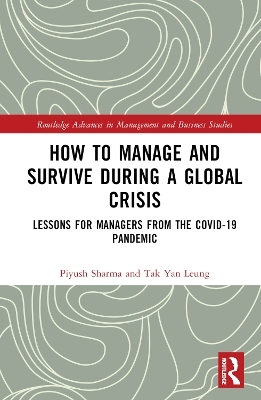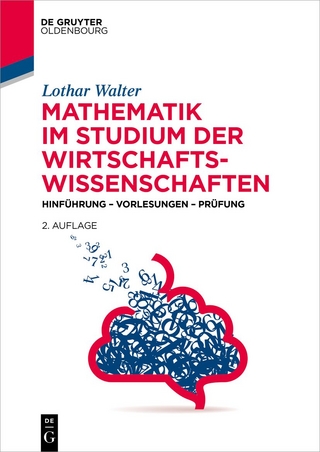
How to Manage and Survive during a Global Crisis
Routledge (Verlag)
978-1-032-12977-8 (ISBN)
Sharma and Leung explore the differences in the national and organizational responses to COVID-19 across various countries.
The COVID-19 global pandemic is possibly the worst healthcare disaster ever, and recent studies highlight several differences in the response to COVID-19. Some countries acted quickly with strict measures to successfully contain the initial spread of the COVID-19 and minimize the number of cases and deaths, while others have not been as proactive and have suffered more as a result. The book is organized under distinct themes based on the stages of the COVID-19 pandemic, consisting of (a) discovery and early response, (b) global spread and reactions, (c) early successes and failures, and (d) subsequent waves and new strains. It goes on to analyze the differences in national responses to draw important lessons for managers and governments and concludes with policy recommendations.
A useful guide for students, managers, and the general public who are interested in learning about the COVID-19 experience and how such global crises could be managed more effectively in future.
Piyush Sharma is John Curtin Distinguished Professor at Curtin University, Australia. His multidisciplinary research appears in the Journal of International Business Studies, Journal of the Academy of Marketing Science, Journal of Service Research, International Journal of Research in Marketing, and Journal of Business Research, among others. Tak Yan Leung is an Associate Professor of Accounting at the University of the Sunshine Coast, Australia. Her research on corporate finance, corporate governance, and executive compensation appears in the Academy of Management Journal, British Journal of Management, Journal of Business Research, Journal of Corporate Finance, Journal of Economic Behavior and Organization, and International Business Review.
Table of Contents
Introduction
Chapter 1: COVID-19 discovery and early response - Unveiling a global crisis
Chapter 2: COVID-19 global spread and reactions – Unity in diversity
Chapter 3: COVID-19 early successes and failures – Battling the unknown
Chapter 4: COVID-19 subsequent waves and new strains – Living with the enemy
Chapter 5: COVID-19 differences in national responses – Different strokes
Chapter 6: COVID-19 business response – Adaptation, resilience, and innovation
Chapter 7: COVID-19 important management lessons – Learning from failures
Chapter 8: Conclusion and recommendations
References
Appendix-I
Appendix-II
Mini-Case I – Samsung response to COVID-19
Mini-Case II – Digital payments revolution in India
Mini-Case III – JobKeeper Payment program in Australia
Mini-Case IV – COVID-19 vaccine diplomacy – The Indian experience
| Erscheinungsdatum | 10.07.2024 |
|---|---|
| Reihe/Serie | Routledge Advances in Management and Business Studies |
| Zusatzinfo | 5 Tables, black and white; 2 Line drawings, black and white; 27 Halftones, black and white; 29 Illustrations, black and white |
| Verlagsort | London |
| Sprache | englisch |
| Maße | 156 x 234 mm |
| Gewicht | 453 g |
| Themenwelt | Mathematik / Informatik ► Mathematik ► Finanz- / Wirtschaftsmathematik |
| Wirtschaft ► Betriebswirtschaft / Management ► Unternehmensführung / Management | |
| Wirtschaft ► Volkswirtschaftslehre | |
| ISBN-10 | 1-032-12977-8 / 1032129778 |
| ISBN-13 | 978-1-032-12977-8 / 9781032129778 |
| Zustand | Neuware |
| Haben Sie eine Frage zum Produkt? |
aus dem Bereich


